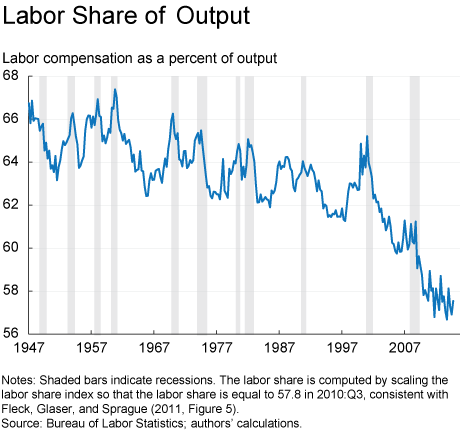shemitta n. the Jewish sabbatical year: A year of the shemitta, when the land must lie fallow and all loans must be canceled
- The World Book Dictionary (1970 edition) Doubleday & Company, Chicago
shemitta n. the Jewish sabbatical year: A year of the shemitta, when the land must lie fallow and all loans must be canceled

HOW BANKS BROUGHT ABOUT THE FINANCIAL COLLAPSE
I could go on about the Glass-Steagall Act in the USA, but let’s keep things simple. The banks consciously took a decision to keep using escalating real estate sales prices as security for loans, even though land prices had developed into massive bubbles. Any half-decent risk analysis asks whether the point has been reached where land prices cannot be sustained at these levels – because every major recession has always followed such a collapse in land prices.
An understanding took root within the top echelon of banks that finance, insurance and real estate (the ‘FIRE‘ sector) having been permitted to develop into a behemoth—much more now than a service sector to the real economy—could never be permitted to fail.
This combination of poor risk analysis and the belief that banking and finance was now “too big to fail” set banks on a course of naked rent-seeking. The more they lent, the more the real estate bubble would inflate, the larger indebtedness to the banks would be, and the greater would become their profits …… Until the bust, that is, at which time it would be they, not people enmeshed in impossible debt, who would be bailed out by taxpayers.
Political interference in this scenario became ‘impossible’—at least from the banks’ viewpoint—and banks had clout. To call banks out on blatant rent-seeking in inflated mortgages would bring this house of cards crashing down – and the big bankers knew it. The meme became that banking must survive – intact.
It was not a consideration that bank survival under these terms must come at the expense of wages and profits in other sectors of the economy, and that a twenty-year zombie Japanese-style debt deflation must ensue.

When questioned in federal parliament today about the sharp September decline in the Westpac-Melbourne Institute consumer confidence index, the Treasurer argued that Chinese share market volatility had shaken many Australians.
It is instructive that Mr Hockey now allows that “offshore headwinds” may adversely affect the Australian economy, because the federal Opposition refused to acknowledge this when the Rudd-Gillard-Rudd governments’ performance became affected by the earlier events within the global financial crisis.
The simple point that governments of all persuasions, everywhere, continue to ignore is that all these financial crises are ultimately home-grown, even though an economy may to a lesser extent also respond to events outside its borders.
China is experiencing slowing economic growth and share-market volatility because of her vast property bubble. She cannot maintain her earlier growth rates because there is an inverse relationship between her property bubble and her productivity. (Henry George’s P – R = W + I confirms this point.)
Just as each bubble in the USA, UK, Spain and Ireland brought on financial and economic collapse in their own countries, so must they eventually do in China and Australia.
Trying to ameliorate Australia’s real estate bubble by much-needed tax reform is the fundamental point about which parliamentarians are not permitted to speak. We must maintain the false CON(fidence?) until our bubble bursts. THEN we might try to mop up after the debacle, instead of having tried to avoid it.
So, much more “market volatility” lies ahead!
“The term land value tax is a misnomer. It’s not really a tax. It’s a return to the public of the benefits we have donated to the landlords. When land rises in value, the government and the people deliver a great unearned gift to those who happen to own it.”
________________________________________________
Pure land rent is in the nature of a “surplus” which can be taxed without affecting production incentives.
It’s much the same here in Oz, but we’re still looking to cut penalty rates on our young workers, and using 457 visa to choke wages down further. This turn of events because Australia is more intent on keeping its land bubble inflated than doing anything productive for the nation.

WE SHOULD TAX LAND VALUES ONLY …. BECAUSE

Hat-tip to Jesse
 Australia needs a tax system acceptable to its politicians and taxpayers, whilst also making good economic sense. Much of the current tax system meets these requirements but, for practical purposes, we ought to be concentrating on changing those soft targets–such as replacing stamp duty on real estate transfers with land tax, as Canberra is now endeavouring to do—which, being cumbersome and inefficient, need to be abolished if we are to maintain a reliable tax system.
Australia needs a tax system acceptable to its politicians and taxpayers, whilst also making good economic sense. Much of the current tax system meets these requirements but, for practical purposes, we ought to be concentrating on changing those soft targets–such as replacing stamp duty on real estate transfers with land tax, as Canberra is now endeavouring to do—which, being cumbersome and inefficient, need to be abolished if we are to maintain a reliable tax system.
Working to such a prescription, instead of trying to do the impossible, will build a tax system that is acceptable to politicians and the public: one that is resilient.
That was my ‘take home’ from the 124th Henry George Commemoration Dinner address delivered at the Royal Society of Victoria in Melbourne on 2 September (Henry George’s birthdate) by Professor Miranda Stewart, Director of the Tax and Transfer Policy Institute at the Crawford School of Public Policy, Australia National University.
Professor Stewart’s speech was accompanied by several charts, including a histogram showing the component break-ups of the revenue bases of a number of nations. My eyes naturally flew to the property component of each country, and I noted Australia was by no means the highest property-taxing nation these days: we were less than the USA, for example. I feel certain that was not the case forty years ago.
Stewart’s address was well delivered and challenging for Georgists who want big changes now. It stressed that sweeping reforms are not possible in the current political environment.
I ventured a question to Professor Stewart: Maybe reform should reflect the current economic reality of nations around the world collapsing as a result bursting real estate bubbles–that is, the need for higher land taxes if we are to keep a lid on escalating land prices? She acknowledged the point, but emphasised the political difficulties. Several thoughtful questions were put to the speaker about necessary reform.
Not that there’s anything wrong with we older bods, but I was cheered to see the large proportion of younger people in attendance, and the discussion and intermingling that took place amongst the sixty or so present.
